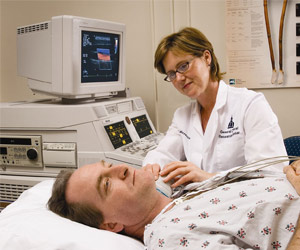Majority of patients haven't thought about deactivating implantable cardioverter defibrillators (ICDs), if they were to develop a serious illness from which they were not expected to recuperate.

"During a time of scrutiny about life-prolonging efforts that may be seen as too costly or medically futile, end-of-life planning is an important topic for patients with ICDs to address with their doctors and family," said senior study author James N. Kirkpatrick, MD, assistant professor in the division of Cardiovascular Medicine and department of Medical Ethics and Health Policy at Penn. "This study provides important insight into patient perspectives around the controversial concept of clinicians deactivating these devices against patient and family wishes. It has been argued that decisions not to perform CPR on patients, even if they want it, is ethically justified in cases of medical futility. If an ICD is a form of resuscitation, it could be argued that defibrillators can be deactivated under similar circumstances."
The study's researchers interviewed 60 patients with ICDs or cardiac resynchronization therapy ICDs (CRT-Ds) at the outpatient electrophysiology practice at the Hospital of the University of Pennsylvania between Summer 2012 and Summer 2013. The survey questions addressed: the inclusion of ICD deactivation in advanced directives; whether ICD deactivation is physician-assisted suicide; and whether unilateral ICD deactivation can be ethically justified.
According to the study's results, only 15 percent of patients had thought about device deactivation if they were to develop a terminal illness. A small majority of patients (53 percent) had advanced directives, but only one mentioned what to do with the device at the end of life. In addition, only 3 percent of patients had discussed device management with their clinicians. However, the majority of patients did not believe that device deactivation in accordance with patient wishes was physician-assisted suicide (78 percent), but did believe that it was not ethical/moral for doctors to deactivate ICDs against patients' wishes (78 percent).
Previous studies have focused on health providers' and patients' perspectives on ICD deactivation, but this is the first to explore perspectives on deactivation against patient and family wishes. "There's definitely a disconnect between the number of people who have ICDs and those who've seriously considered the issues surrounding deactivation of the devices in end-of-life scenarios," said Kirkpatrick. "Additional studies are needed to further explore the ethical issues involved and how definitions and concepts of medical futility are communicated to patients and families."
Advertisement










